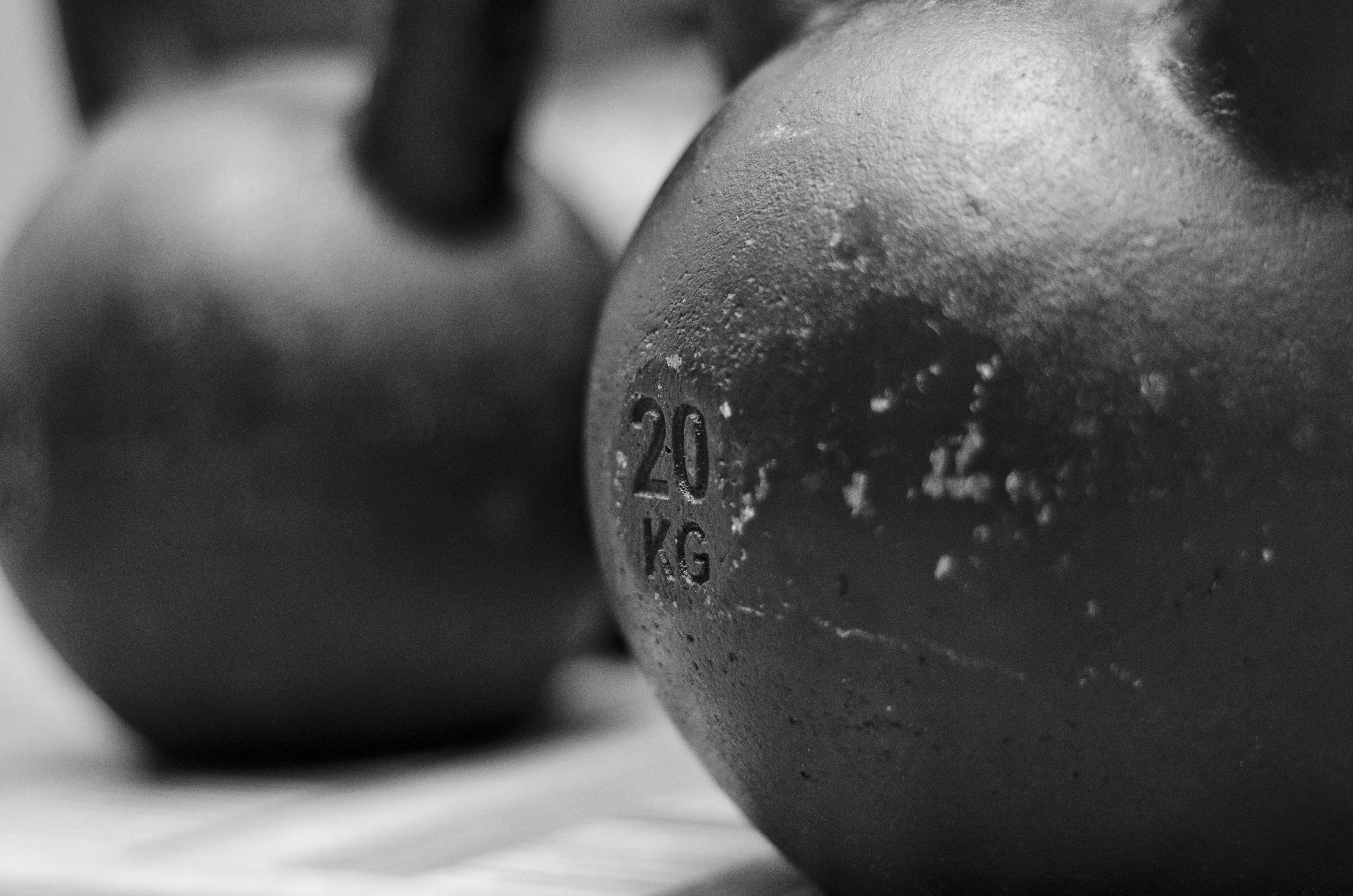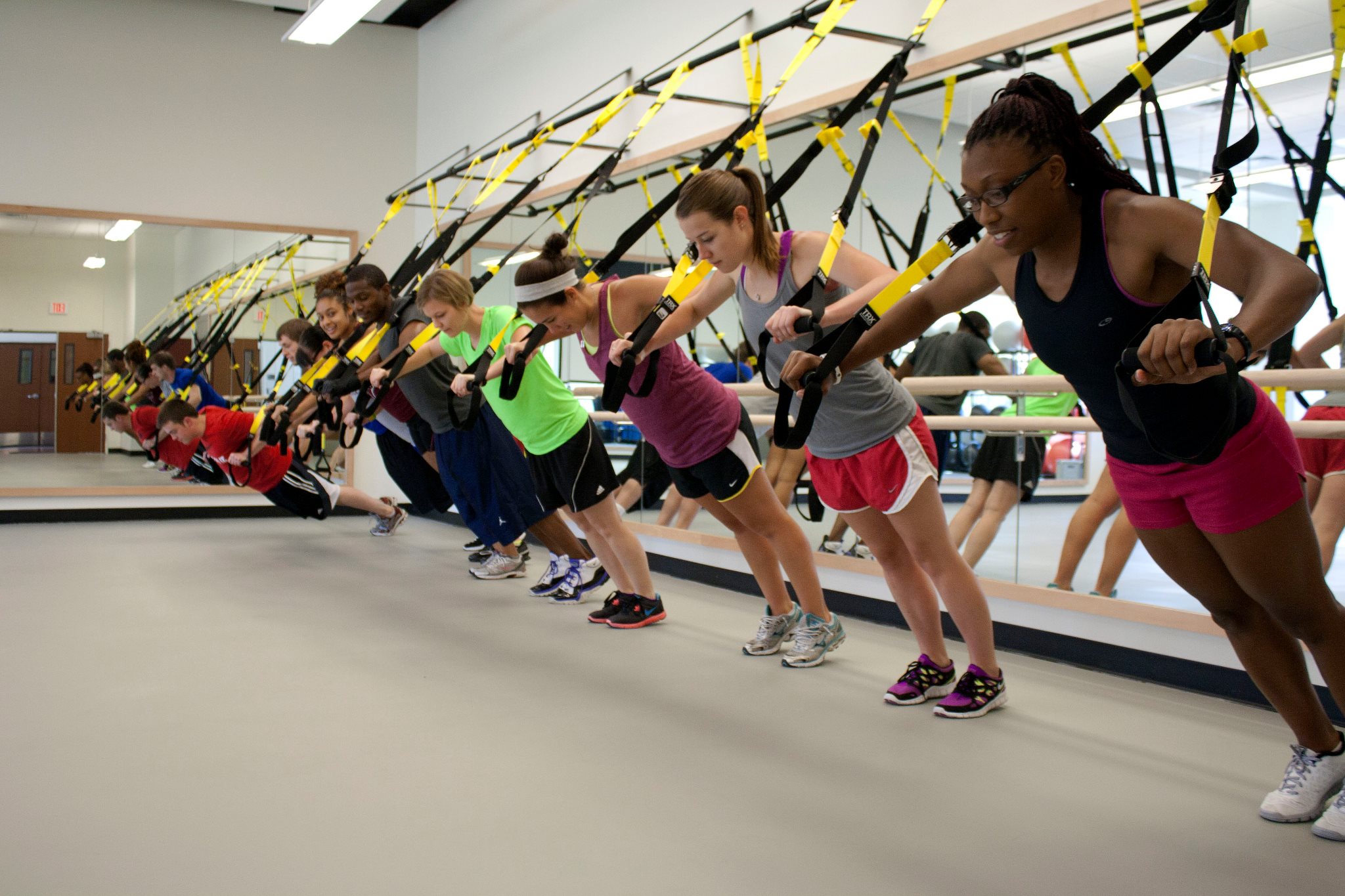Manocchia et al, in another study examining kettlebell training, investigate how ten weeks of 2x/week training impacts strength, power, and endurance. The authors divided their training into five blocks of training, gradually becoming more intense, with a gradual reduction in volume, and increasingly more complicated exercises as the study progresses. Subjects were recreationally-trained males around the age of 40. Subjects were pre-tested on their 3-RM bench press, 3-RM clean and jerk, and performed an endurance test on the Cybex back extension. They were divided into an experimental group (did the kettlebell training) and a control group (did no training). After ten weeks, they were post-tested.
At the end of ten weeks of training:
• The experimental group increased their 3-RM bench press by almost 36%, the control group by almost 7%.
• The experimental group increased their 3-RM clean and jerk by almost 12%, the control group by almost 2%.
• No change on the back extension endurance.
In other words, the group that was on the structured training program made gains on the two strength/power lifts. In their discussion, the authors state that: “The improvement in bench press and clean and jerk observed in this study may be owed to the unique design of the kettlebell and the way that kettlebell activities are performed” (pg. 482). For the authors, this is evidence that kettlebells can effectively be used to help train strength/power during times when equipment or space is too scarce for barbells and dumbbells.
I feel that there are a few challenges with this argument. First, the subjects are relatively untrained. I know this because at the end of the study the subjects are cleaning and jerking 40 kilograms and bench pressing 54 kilograms. In other words, the results of this study cannot be applied to highly trained athletes. To establish the superiority of using kettlebells to maintain/increase strength and power, it would be interesting to compare this by initial conditioning level. For example, is an experienced division I football player going to react the same as someone previously untrained? Second, and related, these gains may have more to do with the subjects’ initial fitness level rather than the nature of kettlebells. When working with individuals who are low fit, any kind of structured training program will result in gains. Third, I feel like studies like these are fundamentally misdirected. By that I mean that they are attempting to establish that kettlebells are effective at assisting with the kind of strength measured by using a barbell. It’s like training box jumps and seeing how well it improves your 500 meter swim time. If you want to show the transferability of kettlebells, it would make a lot of sense to pick athletic fitness tests like the vertical jump, 40, L drill, etc. and compare kettlebells to other training modes and see what kind of impact they all have on athletic performance tests.
Personally I enjoy kettlebell training. But, I’ve also been around long enough that I don’t feel there is any “best” training tool, they all have advantages and major limitations. Kettlebells (to me) have an interesting role in metabolic conditioning, core training, and shoulder strength.
The authors concede that there are limitations to their study. They also concede a need for more rigorous studies looking at this. There’s a lot of opportunity for research in this area.
Manocchia, P., Spierer, D.K., Lufkin, A.K.S., Minichiello, J., and Castro, J. (2013). Transference of kettlebell training to strength, power, and endurance. Journal of Strength and Conditioning Research, 27(2): 477-484.


